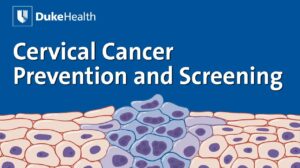NEW YORK (Reuters Health) – Adding the multitargeted tyrosine kinase inhibitor sunitinib (Sutent; Pfizer) to docetaxel did not improve clinical outcomes when used in the first-line setting in a phase III open-label study of women with HER2/neu-negative advanced breast cancer.
The combination did improve the objective response rate but did not prolong survival time compared with docetaxel alone. In addition, the researchers say adding sunitinib may also have resulted in adverse events that “yield an unfavorable risk-benefit ratio.” Based on their study, they say sunitinib cannot be recommended for use in advanced breast cancer.
In the study, nearly 600 patients with chemotherapy-naive metastatic breast cancer were randomly assigned to combination therapy (sunitinib 37.5 mg/d, days 2 to 15 every 3 weeks; and docetaxel 75 mg/m², day 1 every 3 weeks) or monotherapy (docetaxel 100 mg/m² every 3 weeks).
“This strategy,” the researchers point out, “was firmly supported by preclinical data and two clinical studies, which provided evidence of sunitinib antitumor activity in breast cancer.”
However, the sunitinib-docetaxel combination was not superior to docetaxel alone in prolonging progression free survival (PFS) in this cohort, Dr. Jonas Bergh from the Karolinska Institutet and University Hospital, Stockholm reported online February 13 in the Journal of Clinical Oncology.
Consistent with the earlier data, the combination did yield a statistically significant higher objective response rate (by 13 percentage points) compared with docetaxel monotherapy (55% vs 42%; odds ratio, 1.71; one-side p =.001), the researchers say.
However, this did not translate into an improvement in median PFS, which was 8.6 months with combination therapy versus 8.3 months with monotherapy (hazard ratio [HR] 0.92; one-sided p=.265) or overall survival (24.8 vs 25.5 months; HR 1.21; one-sided p= .904).
Also, there were more deaths due to cardiac, infectious and embolic causes in the combination arm than the monotherapy arm (107 vs 91). In a linked commentary, Dr. Hope S. Rugo, of the Hellen Diller Family Comprehensive Cancer Center, University of California San Francisco says, “we can presume that this excess was at least in part a result of the addition of sunitinib.”
Adding sunitinib to docetaxel did not increase hematologic toxicity, but it did result in a marked increase in skin toxicity (16% absolute increase in grade 3 to 4 hand-foot syndrome), Dr. Rugo notes. More patients in the combination arm than the monotherapy arm discontinued treatment.
In her commentary, Dr. Rugo makes the point that a number of phase III trials have also demonstrated “excess toxicity without benefit or even worse outcome with sunitinib versus the comparator.”
She says, “The era of multiple nonspecific phase III trials in breast cancer should be over.”
In her view, “It seems that the type of agent is critical and that lack of specificity limits rather than increases clinical activity in breast cancer.”
“To date, only one VEGFR multitargeted TKI has resulted in encouraging combination data in metastatic breast cancer, with modest improvements in PFS in two of four randomized phase II trials with sorafenib,” Dr. Rugo notes.
“Clearly we need a new approach for the study of new antiangiogenic agents and novel agents that will enable us to define reliable biomarkers that can predict likelihood of response and resistance,” she concludes.
SOURCE:




